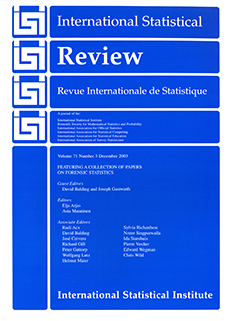Abstract
While many European justice systems distinguish between possession of and trafficking in illicit drugs, sentencing in drug cases in those countries tends not to depend (at least formally) upon the quantity of drugs seized from a defendant, but rather on the circumstances in which the defendant was found with drugs. Courts in the United States, on the other hand, penalize those convicted of drug crimes through an elaborate system of sentencing rules and guidelines. These sentences depend only upon the amount of drugs (possibly adjusted for circumstances) and the defendant's criminal history. Because of the enormous amount of work needed to determine drug type and quantity in each case, sampling the evidence and estimates of drug quantity have been accepted in most courts in the United States. During the last two years, several major developments in U.S. federal sentencing have taken place. It all started in June 2000 with the Supreme Court case Apprendi v. New Jersey, in which Justice O'Connor, in dissent, termed a "watershed in constitutional law". Prior to Apprendi, a judge would sentence a convicted drug trafficker to imprisonment using the preponderance standard of proof on the quantities of drugs seized. The affect of Apprendi is to make more juries decide the quantity of drugs by the reasonable doubt standard. Although Apprendi had nothing to do with illicit drugs, the implication now is that all federal sentencing protocols are under revision. Since Apprendi was decided, huge numbers of cases involving convicted drug traffickers have relied upon its reasoning on appeal, with the result that a ruling from the Supreme Court on further clarification of this issue is expected. This article discusses the impact so far of Apprendi on statistical issues involved in estimating total drug quantity and considers possible future directions under the changing protocols.
Citation
Alan J. Izenman. "Sentencing Illicit Drug Traffickers: How do the Courts Handle Random Sampling Issues?." Internat. Statist. Rev. 71 (3) 535 - 556, December 2003.
Information




